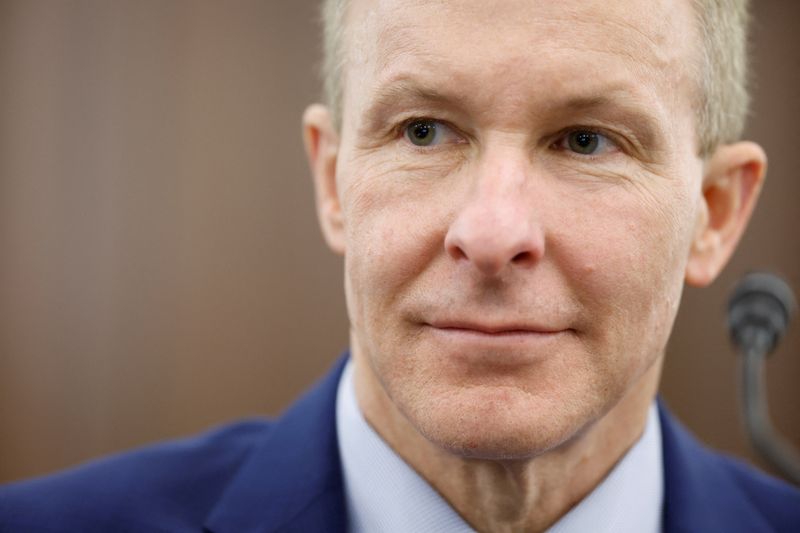By Rajesh Kumar Singh
CHICAGO (Reuters) - United Airlines CEO Scott Kirby (NYSE:KEX) has acknowledged that the carrier's pilots are shunning promotion to the captain's chair, hurting its flight capacity in the fourth quarter, confirming what Reuters reported earlier this week.
Multiple pilots at United told Reuters that senior first officers have been avoiding promotion to captain as they do not want the unpredictable schedule that comes with the bigger paycheck, creating headaches for the Chicago-based company.
"It's the first time that I've ever known it to happen in the airline industry," Kirby said in response to a question on the company's earnings call on Thursday. "It is going to impact capacity in the fourth quarter."
A first officer helps navigate and operate flights, but a captain is the pilot in command of the plane and is responsible for its safety. Airlines cannot fly their planes without a captain in the cockpit.
At United, bids for 978 captain vacancies, or about 50% of the vacancies posted, have gone unfilled in the past year, United pilot union data shows. In June, 96 of 198 openings went unfilled.
Currently, United has about 5,900 captains and 7,500 first officers, according to union data.
United's pilots blame current work rules for making senior first officers reluctant to take promotions. Pilots told Reuters they can be forced to accept assignments on days off and that trips can be changed or extended "on a whim."
Seniority affords pilots some schedule certainty, as it lets them choose and trade trips and plan vacations. But a change in their job category, airline base or the equipment they fly, can affect seniority.
A captain's pay is better, but junior captains face greater risks of being subject to unpredictable flying schedules, more on-call duty and assignments at short notice.

United has sought to address some of those problems in its new pilot contract. Kirby said the contract has already made a difference and led to a better response in the latest bidding for captain vacancies.
"This is a unique issue that will be in the rearview mirror sometime next year," he said.